By Fortune Abang, News Agency of Nigeria (NAN)
Stakeholders gathered in Banjul, The Gambia, for a two-day African regional workshop organised by the Comprehensive Nuclear-Test-Ban Treaty Organisation (CTBTO) from May 31 to June 1, 2024.
The workshop brought together 27 attendees from 23 countries, including both diplomatic and technical representatives.
During the two-day event, participants emphasised the significance of African countries’ adherence to the Comprehensive Nuclear-Test-Ban Treaty (CTBT) for ensuring peace and security across the region.
Topics discussed included strategies to increase support for and achieve universal adoption of the CTBT in Africa, as well as ways to build momentum towards its entry into force.
There was call to Africa Heads of State and Governments to advance the ratification and national implementation of the Treaty.
The CTBT, a multilateral agreement opened for signature in September 1996, has since been signed by 187 nations and ratified by 178, prohibiting any nuclear weapons test anywhere in the world by anyone.
The workshop also focused on ensuring that all States Signatories benefit from Treaty membership, whether through using the data collected by the organization’s state-of-the-art verification regime or accessing capacity building and training opportunities.
It followed other regional and sub-regional outreach events held in Cairo, Egypt; Nairobi, Kenya; Rabat, Morocco; Niamey, Niger; Abuja, Nigeria; Dakar, Senegal; Pretoria, South Africa; and Tunis, Tunisia, among others.
During the workshop, suggestions were made on how to better contribute to the International Monitoring System (IMS), a technical platform of CTBTO’s verification regime that detects nuclear test explosions globally.
Others called for capacity building programmes and training initiatives to promote States signatories’ access to IMS data and International Data Centre (IDC) products for civil and scientific applications, such as earthquake warnings and climate change research.
CTBTO Executive Secretary Robert Floyd emphasised the importance of the ban on nuclear testing for the African region, highlighting the Treaty’s International Monitoring System’s capability to detect any nuclear.
He disclosed that the CTBT has not yet formally entered into force, requiring ratification from 9 remaining countries from a list of 44, including China, the United States, and Russia.
He said that entry into force would unlock the Treaty’s full verification tools, including the ability to conduct on-site inspections to confirm the nature of any suspected nuclear test.
Floyd emphasised the devastating impact of nuclear weapons, citing the Hiroshima bombing as an example, and encouraged African countries to ratify the CTBT, noting that Africa’s 35 IMS stations are actively monitoring global seismic activity.
He praised Africa’s role in building consensus for the Treaty’s adoption by the UN General Assembly and highlighted the importance of complete adherence to the CTBT for realising a nuclear-weapon-free zone in Africa.
Similarly, Mr Dawda Jallow, Attorney-General and Minister for Justice of The Gambia, said the regional workshop would help the stakeholders to discuss and advance the nuclear testing ban policy objective within the region.
He said The Gambia’s ratification of the Treaty in 2022 demonstrated commitment to nuclear non-proliferation and disarmament, as well as dedication to a safer and more peaceful world.
According to him, the challenges Africans faced today required collective efforts through dialogue and diplomacy with relevant support to the CTBT.
Jallow said: “The CTBT’s primary aim is to prevent nuclear testing, but it can also have civil and scientific applications.”
“The verification regime established by the CTBT offers valuable data and tools that can be utilised for purposes, such as climate change research, disaster prevention, including Tsunami warning.”
“These capabilities provide additional benefits to countries like The Gambia and also have the potential of generating positive outcomes across various sectors of economy.”
Dr Oumar Touray, President of the Economic Community of West African States (ECOWAS) Commission, said Africa has been a driving force in nuclear non-proliferation and disarmament.
He said this was particularly through the Treaty of Pelindaba, which established a Nuclear-Weapon-Free Zone (NWFZ) in the region.
“This workshop is important to uniting African countries towards achieving a shared future, advancing the CTBT and reinforcing our collective resolve to prevent nuclear proliferation and promote global security.”
“Today, we are gathered to contribute to a cause that not only affects our continents, but the entire world.”
“This workshop is a testament to our shared dedication towards achieving sustainable peace and cooperation in Africa and beyond”, Touray said.
Mako Sitali, a senior Geo-scientist at Namibia’s CTBT National Data Centre (NDC) extolled the workshop to have provided platform for knowledge sharing on gains of nuclear testing ban.
“I believe in teamwork. Being in a room with so much regional expertise was a fantastic opportunity to learn from each other and collaborate. This is a crucial first step towards realising our vision of a world without nuclear tests”, Sitali said.
The stakeholders agreed that the proposed 2025 workshop scheduled to be hosted in Latin America and the Caribbean or the Pacific will benefit all signatories to the Treaty.
This, they agreed, will be achieved through capacity building, especially those interested in engaging in dialogue against nuclear weapons testing.
This will also ensure the safety and protection of the environment from nuclear weapons tests, aid in disaster management.
It will also serve various other civil and scientific purposes. It aims to establish a world without nuclear tests and create barriers against further development and proliferation of nuclear weapons. (NANFeatures)


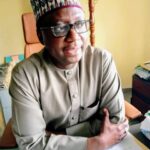

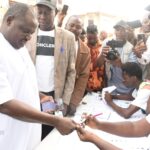

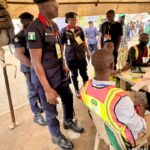
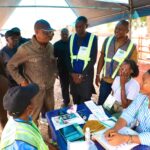



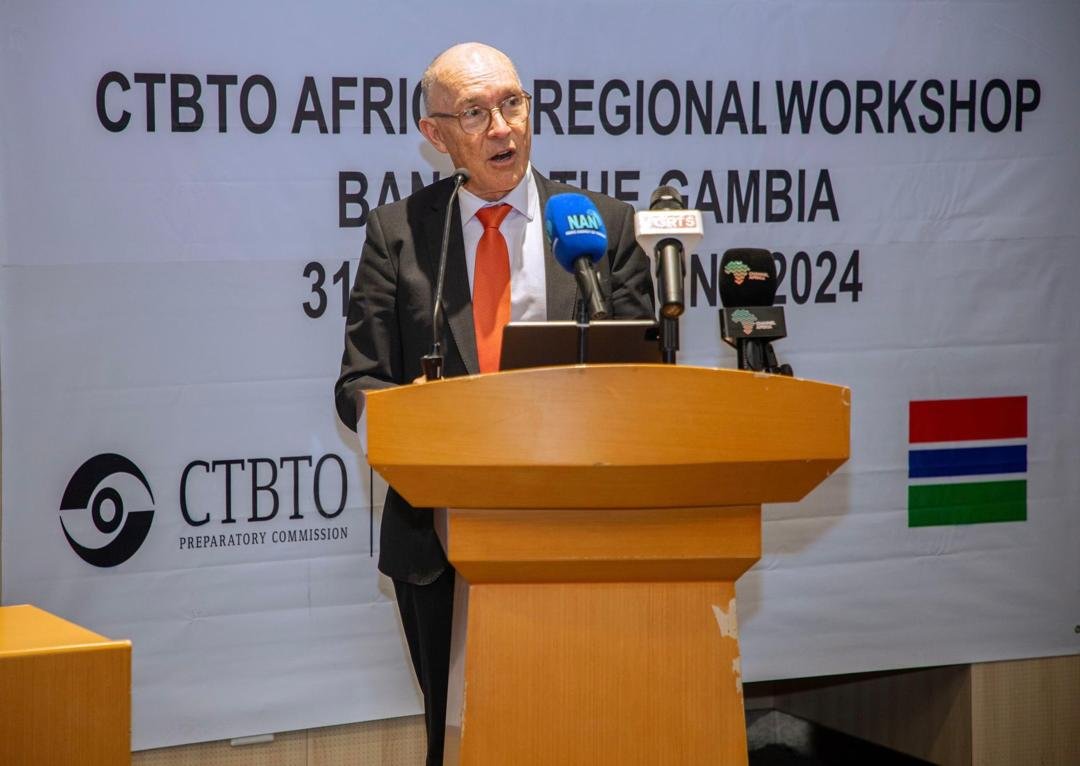

Ibterresant!